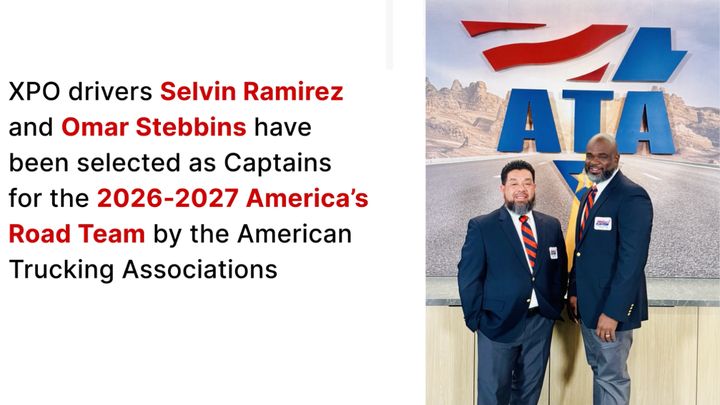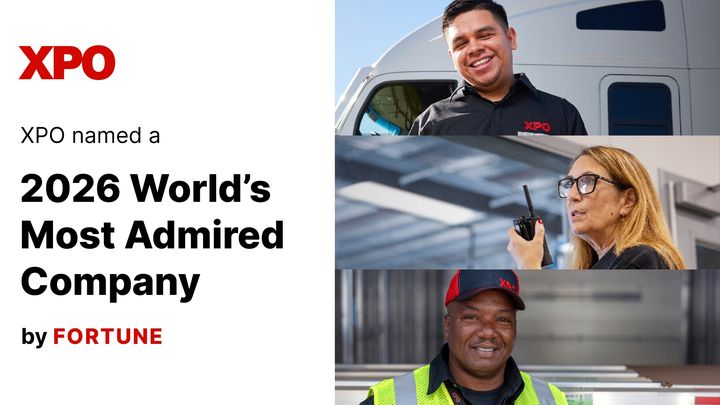Employees with Disabilities Boost XPO’s UK Operation
Neil Blackledge, an XPO Supply Chain site manager in Manchester, UK, has high praise for Jack Lee, a frontline worker who unloads inbound trailers at the site. “If I could employ more 19-year-olds who work as hard as this guy works,” Blackledge said, “we’d have an even stronger business, for sure.”
Aside from being a hard worker, Jack’s a part-time college student who’s popular with his colleagues, loves football, has a great sense of humor and has Down’s Syndrome. As with everyone else, no single one of those things defines who Jack is. Like everyone else, he’s a lot of things. But having Down’s Syndrome has made him an inspiration for a lot of people.
Jack, who’s now 20, was hired in April last year through WorkFit, the employment program delivered by the Down’s Syndrome Association which is the national charity providing support for children and adults who have Down’s Syndrome to live full and rewarding lives. For Jack, it presented an opportunity to put his skills to work. There’s no asterisk associated with his employment with XPO—he works under the same employment terms as his colleagues. He took the same training, receives the same pay and is held to the same performance standard.
"Jack’s just like thousands of others at XPO—dedicated, enthusiastic and eager to learn,” Neil said. “He has the XPO work ethic."
Tailored Approach
None of that is to say that adjustments haven’t been made. But as Neil points out, making adjustments is part of the normal course of running the business, whether it’s safely accommodating a female colleague who’s pregnant or temporarily reassigning an individual whose activities are curbed by a minor sports injury.
In the case of colleagues with Down’s Syndrome, one adjustment is the nature in which roles and skillsets are matched. Neil noted that the standard recruiting procedure is to start with a role that needs to be filled, and then search for an individual with a skillset that matches the role. That procedure is adapted when recruiting an individual with Down’s Syndrome with more emphasis on the individual’s skillset, Neil explained, then moulding the role to capitalize on those skills.
Another adjustment has been introduced as part of the orientation process. Neil said written materials have been simplified and reformatted into “bite-size” chunks to make them more clear-cut. The key, he said, is to eliminate anything in the materials that isn’t directly applicable to the individual’s job.
“For some adults with Down’s Syndrome, if you talk at them a lot, they may forget some of it,” he said. “If you give it to them in bite-size chunks, they’ll usually never forget it.” He added that switching to a video format to present some of the information has aided the process.
Neil pointed out that simplifying the orientation materials for colleagues with Down’s Syndrome has provided an indirect benefit. He said he has 38 nationalities at his site, and many of the employees have a limited command of English. The simplification process has made safety information and other materials more easily digestible for those employees, Neil said, ultimately yielding a safer, more efficient workplace.
Advocacy Role
While Jack’s story is inspiring, it’s far from unique. Jack isn’t the only employee with Down’s Syndrome working at the XPO facility in Manchester, and he isn’t even the first. Neil has recruited three other colleagues through WorkFit who are working in recycling, returns processing and administrative positions.
As a keen advocate for hiring adults with Down’s Syndrome, Neil’s promoting the initiative elsewhere in the UK. Across the country, XPO sites have recruited 21 colleagues through WorkFit so far, with more in the pipeline.
XPO’s collaboration with WorkFit hasn’t gone unnoticed by the wider community. In 2019 the company received the Best Employer Practice award from the British Association for Supported Employment. While the recognition is gratifying, Neil stressed that we have a lot more work to do.
Just 5.9% of adults with a learning disability in the UK have paid employment,” he said. “With over 260 sites in the UK, we should be able to do more.
For any organization to meet its diversity potential, there needs to be a shift in the way we view individuals with disabilities, Neil said. His advice on how to do that is simple.
“Don’t look at the disability,” he said. “Look at the person.”


